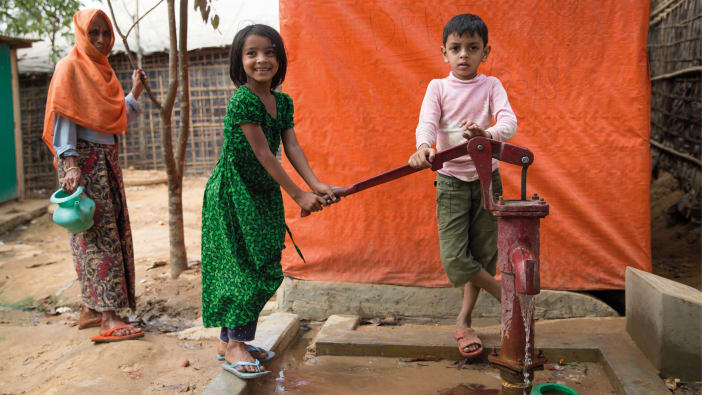by Isobel Blackett.
What makes a low-cost sanitation programme successful?
- Are a lot of latrines in the project area enough evidence to prove that success has been achieved?
- Does it matter if the latrines are always used?
- Does everyone use them?
- Are they kept clean?
Let us look at some indications of what makes a programme successful and how to plan for a successful project.
Eleven guidelines for planning an improved sanitation programme
- Aim for a sustainable programme which makes long-term improvements. This will not happen quickly – it may take many years to be achieved.
- Find an appropriate latrine design for the area. It should be technically able to provide adequate sanitation, affordable for most people and culturally and socially acceptable
- Discuss all you are doing and planning with the future users of the sanitation- especially the women and community representatives or leaders. Work with people. Don’t aim to do the work for them.
- Don’t offer to give people latrines or to subsidize them. The desire to achieve rapid results often leads to serious problems. A credit scheme or revolving loan fund may help many people build a latrine while leaving them fully responsible.
- Promote latrines so that people desire to have one – don’t threaten people that they ‘must get a latrine or else…’.
- Use any means possible to promote improved sanitation. Convince community leaders, local officials, teachers, primary and village health workers and encourage them to assist in the promotion work.
- Either encourage people to build latrines themselves or privatise the construction of latrines by training local builders.
- Make sure all latrine construction is backed up with full health and hygiene education and help on how to use and clean the latrine properly.
- Coordinate the work with those aiming to improve the water supplies or other forms of sanitation.
- Keep the programme costs as low as possible and keep staff numbers low. This will help the programme keep running for a longer period.
- Encourage and help schools, churches, clinics and other institutions to improve their sanitation. This has a good demonstration effect on everyone seeing them.
Six points of a successful sanitation programme
- People in the area really want an improved latrine and are prepared to pay for it or build it themselves.
- The latrines are properly used by everyone, well cleaned and well maintained.
- The programme is sustainable and can assist with long-term improvements.
- Sanitation work is integrated with improved water supplies. The sanitation work is coordinated with water and other forms of sanitation improvements.
- Education about improved hygiene practices, eg: hand-washing and proper disposal of childrens’ faeces, are part of the programme - not an optional extra.
- Attitudes towards sanitation and hygiene are changing and improving in the area.
Does this sound too complicated? It’s not really! Take plenty of time to plan and discuss your policies and programme before you start. In this way you will encourage a successful programme of sanitation.









